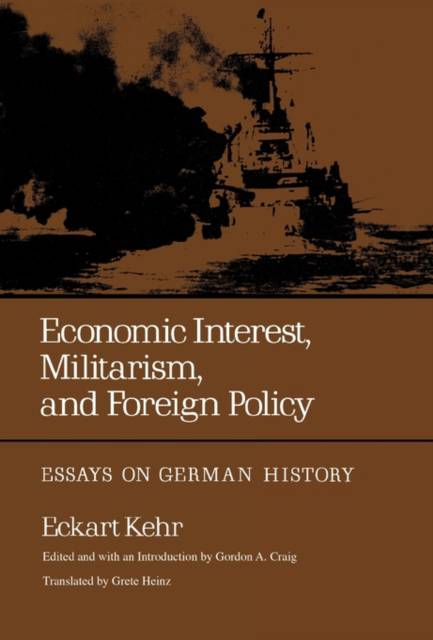
- Afhalen na 1 uur in een winkel met voorraad
- Gratis thuislevering in België vanaf € 30
- Ruim aanbod met 7 miljoen producten
- Afhalen na 1 uur in een winkel met voorraad
- Gratis thuislevering in België vanaf € 30
- Ruim aanbod met 7 miljoen producten
Economic Interest, Militarism, and Foreign Policy
Essays on German History
Eckart KehrOmschrijving
First published in 1930, Eckart Kehr's Economic Interest, Militarism, and Foreign Policy was a landmark in the reorientation of German historiography. Breaking with the prevailing tradition of high political and diplomatic history, Kehr argued that the roots of Wilhelmine Germany's militarism and imperial expansion lay not in grand strategy or ideology but in the material interests of agrarian elites, industrial magnates, and bureaucratic institutions. His essays trace the influence of Junker landlords, heavy industry, and the armaments lobby in shaping naval policy, colonial ventures, and military budgets before 1914. By emphasizing the structural interplay of economics, class interests, and state policy, Kehr anticipated what later scholars would call the "social history of politics."
This volume, edited and introduced by Gordon A. Craig, makes Kehr's pioneering work accessible to English-language readers and situates it within broader debates about the causes of World War I and the character of modern German history. Craig highlights both the brilliance and the provocations of Kehr's Marx-inflected analysis, showing how it opened new pathways for understanding the domestic foundations of foreign policy and for questioning the autonomy of political decision-making. For historians of Germany, international relations, and the origins of modern militarism, Economic Interest, Militarism, and Foreign Policy endures as a foundational text: rigorous in its archival grounding, bold in its reinterpretation, and influential across generations of scholarship.
Specificaties
Betrokkenen
- Auteur(s):
- Vertaler(s):
- Uitgeverij:
Inhoud
- Aantal bladzijden:
- 232
- Taal:
- Engels
Eigenschappen
- Productcode (EAN):
- 9780520028807
- Verschijningsdatum:
- 28/06/1977
- Uitvoering:
- Hardcover
- Formaat:
- Genaaid
- Afmetingen:
- 140 mm x 216 mm
- Gewicht:
- 430 g

Alleen bij Standaard Boekhandel
Beoordelingen
We publiceren alleen reviews die voldoen aan de voorwaarden voor reviews. Bekijk onze voorwaarden voor reviews.








